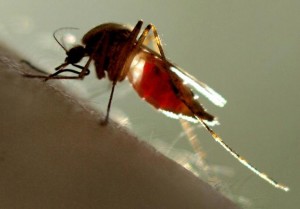Malaria is a deadly disease that causes over 800,000 deaths per year globally out of over 225 million people that it victimizes. This disease is caused by the female anopheles mosquito and generally found in the tropical countries. In certain places in Africa, malaria kills one child every forty five seconds. 20% of deaths in children in these African regions are attributed to Malaria. The parasite that causes malaria is plasmodium. Now, researchers have found a new way to combat the malaria menace.The find is expected to be a breakthrough in formulation of new and more effective drugs that can kill the parasite that causes malaria. The study, which has been conduction through a collaboration of researchers from University of Leicester in UK, Ecole Polytechnique Fédérale de Lausanne (EPFL, Switzerland), French Institut National de la Santé et de la Recherche Médicale (Inserm) working at the Wellcome Trust Centre for Molecular Parasitology in Glasgow, has revealed ways in which the plasmodium is able to survive in the blood stream. The team was led by Professor Christian Doerig from Monash University in Melbourne and Professor Andrew Tobin from the University of Leicester.

The leader of the team Professor Tobin said that results of the study are going to have a very profound influence on future research on malaria and its related drugs. The study also opens up avenues that will provide a stronger base to formulate new drugs. According to Professor Doerig, this study is very important because it outlines the survival tactics of the malaria parasite after entering the human blood stream. The parasite requires kinases for survival. This is a protein present in the human body and is active in the form of an enzyme group. This discovery has led to the conclusion that if there can be some way of preventing the working of proteins kinases, the malaria parasite can be killed. New drugs that will be developed for combating malaria will now have to focus on stopping the functioning of kinases in the body. This will be one true foolproof treatment against the disease.
The major problem that researchers face when they develop techniques to combat disease causing bacteria is that these microorganisms evolve very quickly. They become immune to available treatment methods and hence, drugs stop having the desired effect on these bacteria. Therefore, the fight against these microscopic creatures is eternal. However, results such as that of the current study can help in better management of the problem since ways to strike at the root of the problem have been discovered.